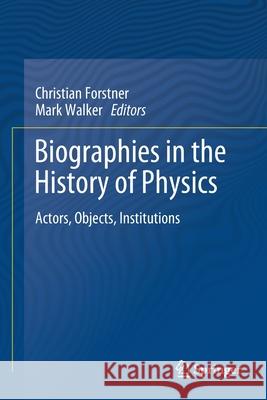Biographies in the History of Physics: Actors, Objects, Institutions » książka
topmenu
Biographies in the History of Physics: Actors, Objects, Institutions
ISBN-13: 9783030485115 / Angielski / Miękka / 2021 / 324 str.
Biographies in the History of Physics: Actors, Objects, Institutions
ISBN-13: 9783030485115 / Angielski / Miękka / 2021 / 324 str.
cena 724,58
(netto: 690,08 VAT: 5%)
Najniższa cena z 30 dni: 693,97
(netto: 690,08 VAT: 5%)
Najniższa cena z 30 dni: 693,97
Termin realizacji zamówienia:
ok. 22 dni roboczych.
ok. 22 dni roboczych.
Darmowa dostawa!
Kategorie BISAC:
Wydawca:
Springer
Język:
Angielski
ISBN-13:
9783030485115
Rok wydania:
2021
Wydanie:
2020
Ilość stron:
324
Waga:
0.46 kg
Wymiary:
23.39 x 15.6 x 1.75
Oprawa:
Miękka
Wolumenów:
01
Dodatkowe informacje:
Wydanie ilustrowane











